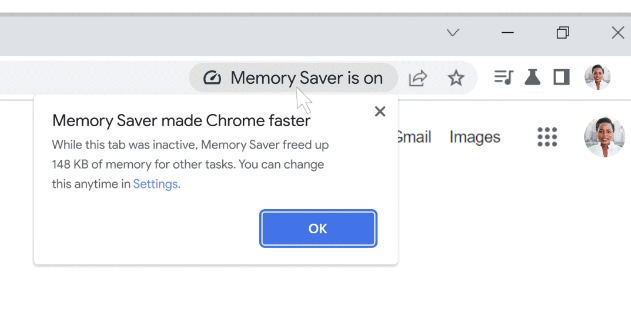Chrome is infamous for being a memory hog, often eating up a larger percentage of the RAM on machines with less memory. The joke is that even if you have a laptop with 64GB RAM, it will never be enough to run Chrome. It’s been that way for years, but Google’s now finally doing something about it. The company on Thursday announced two new modes for Chrome – Memory Saver and Energy Saver – with the goal of optimising the browser for your device’s battery and system memory.
With Memory Saver on, Chrome frees up memory from inactive tabs. This gives active tabs and tabs on the foreground more memory to work with, thereby improving their performance. The feature will come in especially useful when you are running other intensive apps alongside the browser – video editing tools, video games, and the like. Inactive tabs become active again when you go back to them. You can also mark websites important to you to be exempted from Memory Saver.

Meanwhile, Energy Saver keeps Chrome’s battery consumption under check. It will kick in automatically when your battery reaches 20%, after which it’ll “limit background activity and visual effects for websites with animations and videos.” Like Memory Saver, this mode can also be toggled off.
Google says that the latest version of Chrome (v108) on Windows, macOS, and ChromeOS supports these new additions, but it’ll likely a while to arrive on your device since it’s being rolled out in a phased manner.
We aren’t seeing it on the stable channel right now but the Canary builds have reportedly got it. Hopefully, the stable build should roll out soon and bring some much needed relief for users.










![Best Weight Loss Supplements [2022-23] New Reports!](https://technologytangle.com/wp-content/uploads/2022/12/p1-1170962-1670840878.png)




